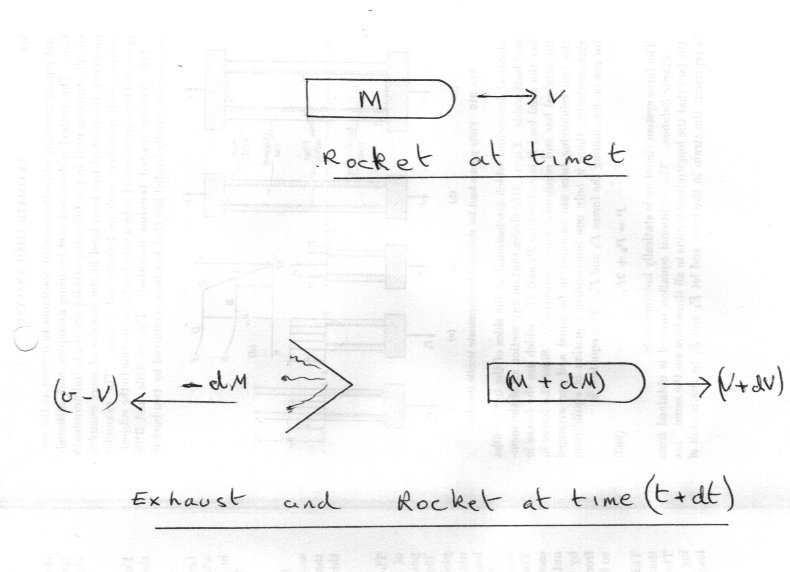Leaderboard
Popular Content
Showing content with the highest reputation on 02/23/23 in all areas
-
I don't think America will go bust if China quits buying 6% of America's debt. It will be sold elsewhere. Agreed. It is an area that I think Biden has excelled at. Some things really do require years of experience in politics, rather than being an outsider with no political experience.2 points
-
I think your bias against America is clouding your judgement. The US is looking at the total picture; weapons, economics, politics, the past, the future, influencing, cajoling, threatening, enemies, allies, quid pro quo, etc. Russia on the other hand is looking at the total picture; weapons, economics, politics, the past, the future, influencing, cajoling, threatening, enemies, allies, quid pro quo, etc.. The US is trying to minimize risk and maximize success. Russia is doing the same. The US (or Russia or China) would not be a very sophisticated country if they didn't take every action they could to try and tilt things in their favor. It is not arrogance. It is a smart move. Russia would like nothing more than for the US to sit idly by as weapons from China or anywhere else flowed into Russia.2 points
-
2 points
-
k = 2 (or -1) are the only solutions that have closed orbits (Bertrand’s theorem) https://en.m.wikipedia.org/wiki/Bertrand's_theorem1 point
-
Yep. If by “iNow is completely forgetting” you mean “already addressed this point more than once several times in this very thread.” If THAT’s what you mean then you are, of course, absolutely 100% correct. I first “completely forgot about it” 20 days ago: And then here again last week: And then here yet again more explicitly just yesterday: And: Sorry I’m so forgetful, though. That’s on me. I just can’t be trusted, obviously. Not engaging in good faith. Yep. That’s totally me. /sarcasm1 point
-
Russia has decided to play the 'short' game, exposed all their weaknesses, and fared badly. V Putin will now go down in history as a loser or a madman ( if his nuclear arsenal still works and he's willing to use it ) Xi is a lot smarter; he's playing the 'long' game and remains uncommitted to either side, waiting for one or the other to show a weakness. He's an opportunist who has no problem allying himself with the West if Russia continues its failures in the Ukraine as it benefits China and his grip on it. If, OTOH America should show a lack of resolve, he will take that opportunity to ally with Russia and take Taiwan.1 point
-
Sorry, I missed the link you surely posted about Ukraine invading a sovereign nation and killing civilians en masse and committing mass war crimes and issuing threats to multiple NATO countries. I mean, I assume that's the story I missed that would make sense out of your equivalency between Russia and Ukraine.1 point
-
No. It (momentum of either rocket, fuel or both) only has to be conserved if there are no external forces on the system. In the more general case with an external force that I presented to you --in the presence of this external force acting on both the rocket and the exhaust-- neither momentum nor (mechanical) energy have to be conserved. You say "momentum" and "energy" as if they must mean something independent of what system you apply it to, or which level of detail you want to describe it. They don't. Rocket: Energy is not conserved Momentum is not conserved Exhaust: Energy is not conserved Momentum is not conserved Rocket + exhaust: Mechanical energy is not conserved Mechanical energy + chemical energy stored in fuel is conserved Momentum is not conserved if rocket + exhaust are in a gravitational field Momentum is conserved if fuel + rocket are in free space You see, when you burn fuel, some kind of potential energy that's stored in the molecular bonds gets converted into heat + kinetic energy for both rocket and exhaust. We call this energy Gibbs free energy (of fuel). So no, mechanical energy is not conserved in this case. If the rocket is stationary in free space at initial time, K.E = P.E. = 0 initially. Then it starts burning fuel and starts moving. Now P.E. is not cero, but K.E. is K.E. of exhaust + K.E. of rocket. So where did this energy come from?1 point
-
And I would like to point out again, that here we do an asymmetric conflation. Remember OP started with asking a step ahead, and asking about potential benefits of homophobia. And I think we have pointed out sufficiently that we cannot put all likes/dislikes into the same bin. Sexual orientation has a deep rooted developmental part (but likely not that innate as some might think, just basically immutable at some point). However, feeling uncomfortable to any sexual behaviour is much learned, as we know that there are plenty of folks uncomfortable around public displays of affection (that is why there are or were morality laws in place). So we are basically already talking about very different sets of behaviour, despite the fact that we kind of go in circles every few posts. And this goes to what I mentioned earlier that behaviour is almost always developed in conjunction with environment. That can actually be internal development. The brain and humoral system and whatever is involved does not develop in a fixed program, a lot of things during development influence how it is executed and therefore how things end up. In this case if you basically magically change the brain, you are likely to change the outcome. Which is why the innate discussion never made much sense. The point however, is that barring magical brain changes, there is a very common way to change the brain and that is exposure and learning. As cultural norms change, and e.g. showing affection becomes acceptable, magically more folks are less bothered by it.1 point
-
You would need to understand the system a bit. I.e. if you hypothesize that the mine releases heavy metals, what is the expected zone of leeching and is there flow through the system? If so, you could select sampling points that targets water before it reaches that expected zone as well as downstream elements (where they should carry contaminants). So this is a bit of a semantic issue and it depends on context. If you talk about the study design, you could for example distinguish monitoring projects (where you observe a system) and one where you manipulate it experimentally and then measure the outcome. But you can also use the the term to determine whether something is wet lab (i.e. doing some sort of analyses) vs data crunching. Studies do not have to be quantitative, but even them the papers outline some sort of question. For example, the authors in the paper you linked outline that there is a knowledge gap regarding the crustaceans in urbanized areas;- the areas in question are interesting since there is data from the 50s but there has been increasing urbanization and pollution since then; and they also compared spatial distribution in between more and less-disturbed areas. So again, a key point is the research question. The methodology follows from there (and generally not the other way round).1 point
-
I just love it when some confused person has to use a YouTube video to back up their claims. Try a good Science book instead; YouTube is NOT peer reviewed. Maybe you should realize that we have sent interplanetary probes ( now interstellar ) on fly-bys of the outer planets, including Pluto ( and pictures sent back as proof ), using the Newtonian gravity model, which happens to include G . Do you even stop to consider what accuracy G has to be known to ( never mind the Cavendish experiments) to be able to plot and execute near orbital trajectories at the distance of Pluto ?1 point
-
There’s a scene in “Resident Alien” where the protagonist is asked by two kids if he poops. He says, “Everybody poops” and the kids giggle, “Just like the book!” Anyway…I didn’t even mention the reaction mass a craft would have to leave behind if it ever landed and took off. (unless one is invoking new physics, which is a problem, because now you need evidence of that, and one can do those experiments in a lab without any stigma of alien research. NASA’s even funded such efforts, IIRC)1 point
-
If you're referring to UAPs, they have been. There's a lot of photographic evidence of UAPs.1 point
-
1 point
-
OK then to continue. I am presenting this a Physics exercise, not a formal maths one, although maths is involved. Physicists are allowed to bend the maths rules a bit. Let us consider a rocket travelling along. The trick to analysing this is to use the fact that momentum is constant for the whole rocket system (rocket plus exhaust), although it is variable for each part separately. Thus system momentum = p = a constant. But we analyse this by considering the parts of the system separately. At some time t the rocket has mass M and velocity V. At some time (t +dt) these have changed so the rocket now has mass (m + dm) and velocity (V + dv). Note dm is negative . Furthermore -dm is the mass of the exhaust, which has a velocity v relative to the rocket or velocity (v-V) to a ground observer Splitting the system mass in this way saves introducing m for the exhaust mass and simplifies the maths. Here is a diagram showing these essentials. So the system momentum at time t = p MV (first figure).................1 Note this excludes the need for considering the exhaust momentum at this stage But the system momentum at time (t + dt) is also = p = (M + dM)(V + dV) - dM(V-v) .......................2 Multiplying out the terms and taking care of the signs then either subtracting equation 1 from equation 2 or simply using the fact that the right hand sides are both equal to p we can equate them directly leads to the expression MdV + vdM = 0 .........3 Two notes here. This is a momentum equation, not a force equation. This equation is the springboard to answer questions about the desired properties of the rocket system. So for instance we can remember our schoolboy calculus and note it can be rewritten as (after dividing through by M) dV = -v d(lnM) where lnM is the natural log of M But you have asked for the force on the rocket also known as the thrust. To get this we proceed as follows We divide equation3 through by dt to obtain [math]M\frac{{dV}}{{dt}} + v\frac{{dM}}{{dt}} = 0[/math] If we let [math]\alpha = - \frac{{dM}}{{dt}}[/math] Then [math]M\frac{{dV}}{{dt}} = \alpha v[/math] This is the required force on the rocket.1 point
-
You mean like this: conflating sexual preference with his preference to be disgusted with it as genetically programmed? The latter is not innate, I've changed my own opinion on it over time, and my disgust has changed to acceptance. I suppose that answers the OP...it is nurtured by negative messaging/exposure in some way.1 point
-
I think the comparison with fashion taste is unfortunate because one can change it on a whim, but not who one is attracted to. Fashion, by definition, is ephemeral in nature.1 point
-
Same as glasses for long-sight. They are called plano-convex lenses: https://www.firebirdoptics.com/blog/intro-to-the-plano-convex-lens#:~:text=A plano-convex lens is,the lens being bowed outward.1 point
-
1 point
-
This all might be true, in which case you are arguing that sexual preferences are nature (genetic programming) due to an evolutionary survival mechanism, not nurture (learned behaviour). But you expect me to my change my preferences (genetic programming) to align with someone else's (genetic programming), but not vice versa. Hang on, I mentioned I find coconut distasteful and the response I had was that its not the same as sexual preferences. Now you are saying that fashion tastes are similar to sexual tastes. So a person not liking a particular item of clothing makes them bigots. This is all getting rather silly now. Though I agree with you, changing peoples attitudes towards certain things can have and does have a social impact. There is though, in my opinion, a difference between a person liking/disliking something and a person accepting something. There is also a clear difference between a person liking/disliking an act that someone engages in and liking/disliking the person engaging in the act. It's when activists from either side conflate the two where problems occur.1 point
-
Noisy inputs are what we were discussing earlier: input signals with too much noise in them. Noisy outputs are neural output signals with noise in them, i.e. what you would get from the neuron with not enough averaging. Apparently, noisy neurons create their own noise and this is necessary for learning: https://news.stanford.edu/2015/03/18/decisions-noisy-neurons-031815/1 point
-
No. Your equation makes no sense, because you are trying to divide apples by sink plungers. G and g are different sorts of quantity. As has been pointed out, if you were to use different units the numerical relationship you have found would not arise. That means there is no significance in it. What you are doing is like noting the approx height of a man is 6ft and there are 6 sides to dice. Coincidence! Whereas if you work in metres, the height of a man is a bit less than 2metres and the coincidence disappears.1 point
-
From a behavioral perspective of nature vs nurture. We learn from patterns and are most receptive to their recognition early in life when they build the foundations to interpret our reality and the responses that will 'favor' our existence within the reality to which we were born. Deviation from the patterns our reality is based on after the more formative years are not as readily received or integrated, unless the psych has also been primed to recognize that patterns vary with environment, and how to navigate and integrate the realities of alternate perspectives. Nurture. If alternative foundational patterns are missing or not sufficiently re-enforced after the more formative period, and I am working with that animal, I can expect limited adaptation or acceptance to a new set of expectations I am trying to put in place. Thats Nature. If I'm trying to alter the responses I'm being given (fear, frustration, anger and resistance, maybe disgust?) opposition is seldom my best option, more often re-enforcing the behavior. I'm validating opposition. I'm far better off and will proceed much faster by observing where the discomfort or opposition begins and what sets it off, then demonstrating an alternative response that by passes the dis-ease. New behavioral patterns are more readily integrated once the benefits or reward is clear, but I have to bring about its demonstration first, before arousal to states of fear, anger etc because those are not receptive states. I won't eliminate those states. They are caused by environment and foundations laid. I can alter perception of the environment, by laying down additional patterns and re-enforcing them, by which to determine its reality against its 'beliefs'. I am disgusted by the thought of eating escargot. For all the biological reasons one experiences disgust. I don't transfer that disgust to people who eat it. Eating it disgusts me. I could likely learn to eat it, or at least moderate my disgust at the thought, but I'm not in a position where there is any clear benefit to try. As long as there is no expectation I enjoy it too, theres nothing to oppose in those who do. Extinguishing my disgust is not so simple as opposing it. There needs to be demonstration of the benefits to doing so, and familiarity with . I am not going to be receptive to those in any state of arousal to unjustified opposition. Opposition seldom results in integration, only reduction. I have researched preparation of Escargot. Familiarity with the subject eases the disgust and and would likely over come it, if I saw the need to re-enforce my familiarity.1 point
-
This to me does seem observational, rather than experimental. This falls under monitoring or surveillance studies. However, you do need to start of with a question. In this case, you have implicitly stated that you suspect an impact of a (former) copper mine. What you then need to figure out what your control would be. For example, are there aquifers that you can trace up and down stream of the mine? Measuring biodiversity is like measuring any other variable, it is not experimental as such (but can be made subject to manipulation). A very common way of quantifying biodiversity is using Simpson's Diversity Index. But again, this is not a study in itself, just monitoring. A good research study would try to figure out the impact of something on biodiversity. And you would need to set up up your sampling method accordingly.1 point
-
Hmm. How do I respond to that without getting suspended...1 point
-
I believe that much of what we have a distaste for is simply a vestige of our past. Some people won't eat peas because they remember them being gross when they were a kid. I about gag when I think about Wild Turkey because it gave me a two day hangover after my 21st birthday. Some people don't like thinking about gay sex because of how it was talked about when they were young. Unless you are outwardly displaying these distastes and causing issues for others I see no reason to be obliged to make an effort to reverse those distastes. They are like a singe mark on a piece of furniture from a long ago fire. I could certainly make the effort to erase it completely, but it doesn't mean much to me and I have other things occupying my time. I'm more concerned about people's actions than their thoughts. I don't deny that everyone making an effort to eliminate such thoughts would have an overall positive impact on society due to the fact that some will otherwise let their feelings show through. Similarly we should probably all limit salt intake due to the fact that some of us will otherwise develop high blood pressure because of it. But it seems to me to be a relatively small issue and a small risk. After all, those who are truly bigots wouldn't try anyway.1 point
-
Disgust / distaste / repulsion... there are evolutionary reasons we respond this way. Those reasons are to avoid illness and stop the spread of parasites. When those feelings apply to homosexual acts, it means we find those acts to be unclean, pathogenic, sick... When the bonobo ignores the banana peel because it's too close to a pile of scat, they're feeling repulsion because it's unclean and likely to spread illness to them. When kangaroos avoid patches of grass that are freckled with feces, they're feeling repulsion because it's unclean and likely to spread illness to them. When antelope gather their poo in dunghills, they're feeling repulsion at the idea of it being left in their territories. When bullfrog tadpoles flee the fungus infested ponds, or lobsters avoid crowded dens of crustaceans during viral outbreaks, or nematodes wriggle away from meals that seem to have bad bacteria... they're all doing so to guard against disease. This all makes evolutionary sense. These reasons are all valid, and interestingly many of them involve feces, dung, poo, dookie, excrement, etc. It's entirely possible these feelings against male heterosexual acts have similar deeply primal mostly unconscious tendencies, I grant you that. However, it's hard to escape the conclusion that despite evidence to the contrary these feelings many of you have toward male gay sexual acts are themselves rooted in a belief or feeling that they are unclean, pathogenic, sick, likely to spread parasites, likely to lead to illness, likely to lead to death. That's what I'm trying to get you to understand. Feeling that way even in the face of contrary evidence (safe sex practiced by hetero and homo couples are equally likely to lead to negative outcomes, there's nothing specifically about the gay version that makes the risk higher)… feeling that way is a type of bigotry. Why does this matter in context of our broader civilization? Why should we attempt to root out bigotry and bias in all of its many forms? Well, if you don't already know the answer to that question yourself without me spelling it out for you with construction paper and fat crayons, then I'm afraid you're likely too far gone for me to convince anyway. There's nothing unclean about safely practiced male gay sex. If you feel otherwise, then the problem is with you and the tens upon tens of millions of others who feel the same way. Indeed, couldn't agree more. Unfortunately, right now today in the actual present in the actual reality we share, my state ALONE has a staggering NINETEEN (19) bills targeting the LGBTQ community, and there are 340 (three hundred and forty) more being actively pursued in the other 49 state legislatures (an average of 7 each). We're a LONG effing way away from "normality" and lack of "threats." We must ask ourselves which side we're going to be on, because there is no middle ground on issues like this. Join or die.1 point
-
The real danger of a WW3 is if the USA govornments continue to believe their own pompous bullshit. The arrogance is unbelievable. We can supply Ukraine with whatever we like, tanks, missiles, ammunition. But China or Iran can't supply Russia, their long-term allies. That's because 'we' are always right, and 'they' are always wrong. It's the sort of black and white shite that is all the US public can get their heads round. Actually, the White House lecturing of China is almost certainly counter-productive. The Chinese thoroughly dislike that bossy attitude, and are generally inclined to take instructions from nobody. They usually like to avoid rocking the boat, without backing down an inch. That's because they know that time is very much on their side, in the world power stakes. The US might or might not be slow-walking towards WW3, but they are definitely gliding inexorably towards being the worlds second most powerful superpower.0 points
-
"No one calls conflicts as they happen".. BTW, Russians (etc.) do not call World War II, World War II, but "The Great Patriotic War".. and according to them it didn't start 1st September 1939, but 22 June 1941. https://en.wikipedia.org/wiki/Great_Patriotic_War_(term) History lessons in each country are completely different.. But you don't have a clue about that..0 points
-
I don’t see how you reach this conclusion. Who said debate and investigation are not justified? On the contrary, we’re begging for you to legitimately investigate, instead of the shoddy hand-waving that we currently get. For actual scientific data, instead of de facto attempts to get a waiver from scientific rigor. What’s stopping you, and other like-minded folks, from investigating? Is complaining about having to live up to scientific standards too time consuming? The problem, it seems, is you want others to investigate, and yes, you need to come up with something to motivate most scientists to spend time (and money) on someone else’s pet project. Most scientists have their own research to do.-1 points
-
What's the point if you can't understand or establish basic results in physics? You showing an aptitude to think or comprehend is a pre-requisite to understanding what I have to say.-2 points
















